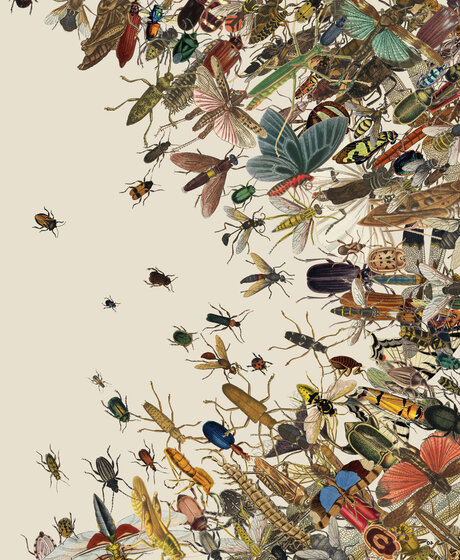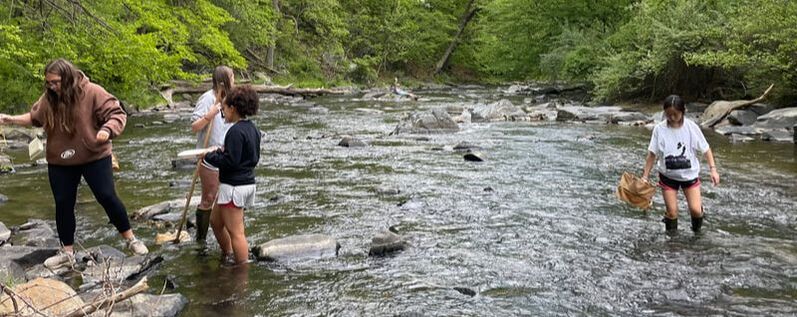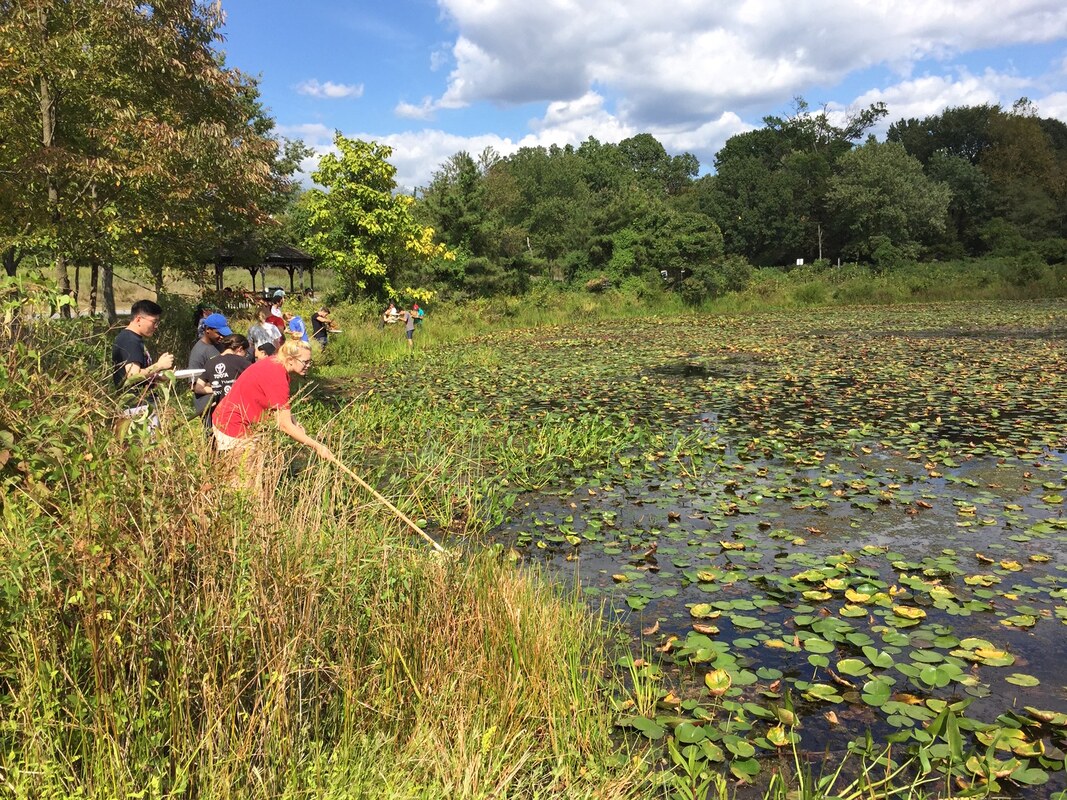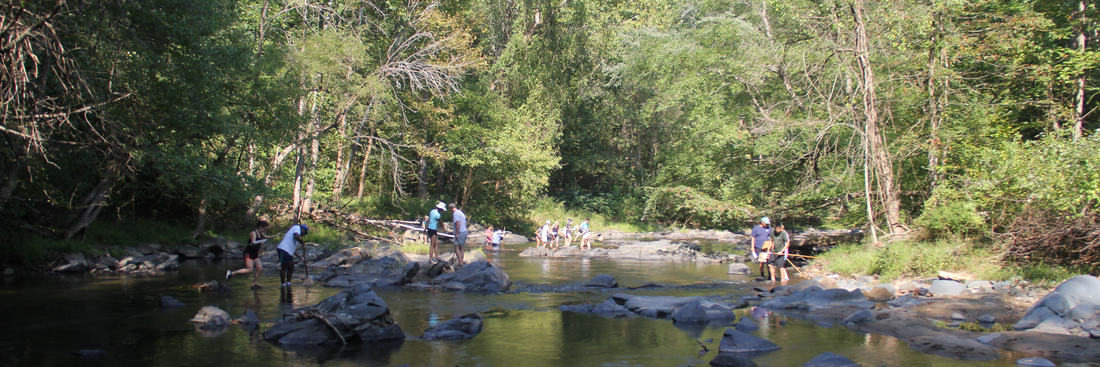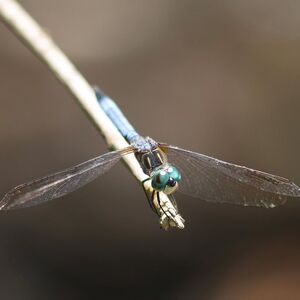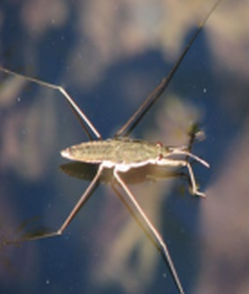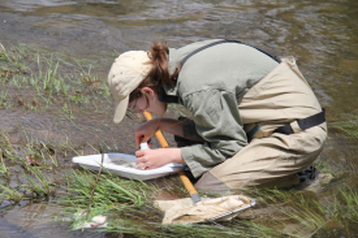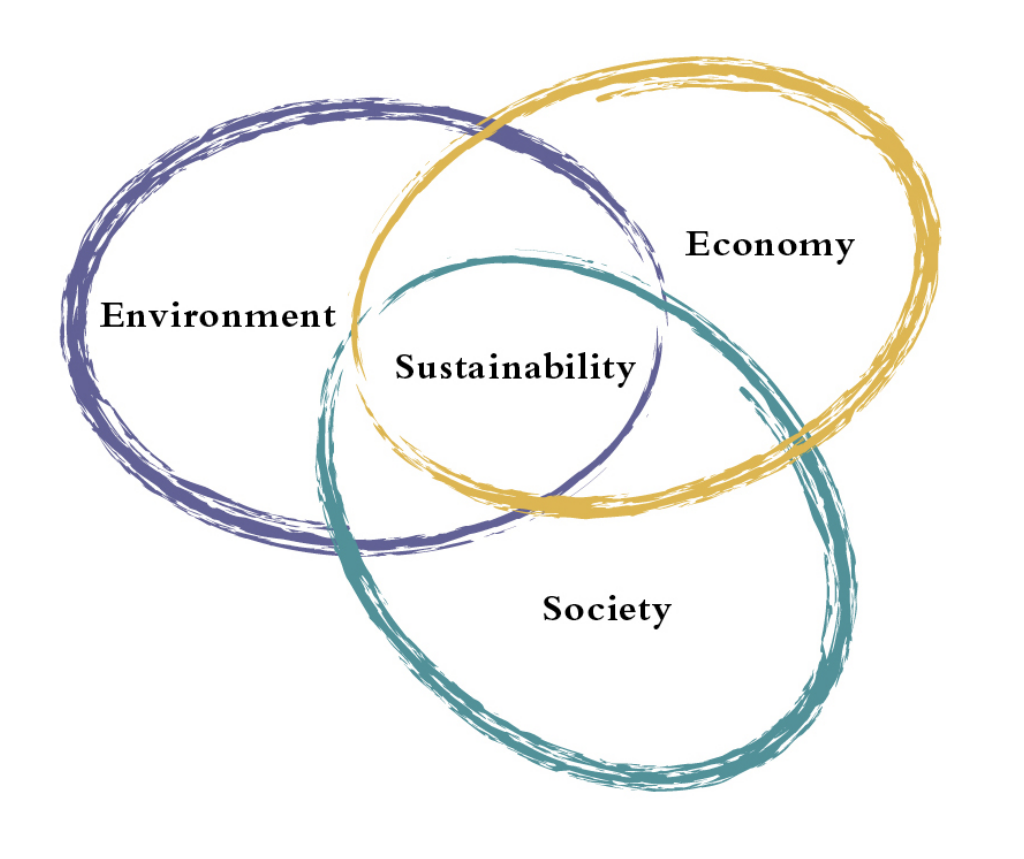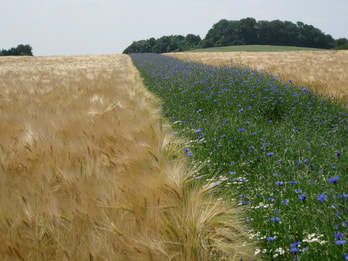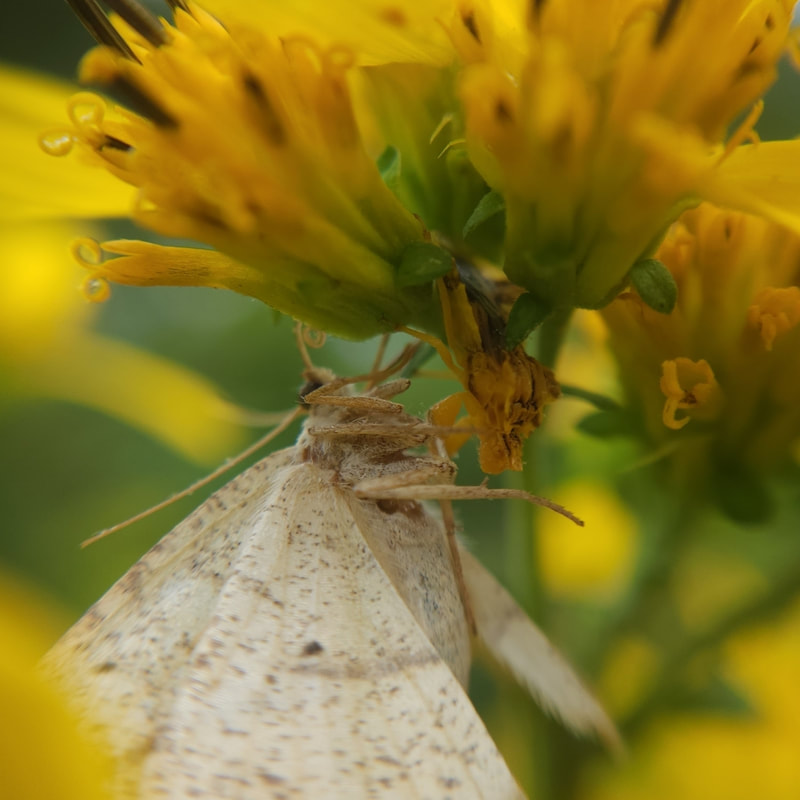BSCI 145 | The Insect Apocalypse: Real or Imagined?
Course Description: An article in the New York Times, in 2018, declared an “Insect Apocalypse” that for the first time brought the signs of general, unexplained reductions in insect abundance to the public and suggested a catastrophe awaits our planet. Scientists have long documented the loss of species of insects at a rate exceeding the extinction rates associated with the major geological events in the Earth’s history. The “insect apocalypse”, more generally called the “insect decline in abundance” among researchers, was much more surprising and potentially could lead to the demise of all terrestrial and freshwater ecosystems. The course will start with the New York Times article as well as the preceding research publication by Hallman et al. (2017) that provided the evidence for the decline of insect biomass. Based on science and research, students will be provided background, and discover on their own, the diversity of the form and functions of insects, as well as how they evolved and persisted for 400 million years.
The Focal Question and Approach: The rich diversity of insect life is at risk from high extinction rates and measured losses in total biomass. How can scientific research identify and provide solutions to the problem of the insect apocalypse? In addition, how can science writers inform the public of the issue and its solution? As a lab course designed for students of any major, the course will celebrate the dominance and incredible variety of insects on our planet, as well as their value to society as providers of ecosystem services. Discussions will focus on sustainability, and the role of conservation and restoration to ensure the future of insects (and us) on our planet.
BSCI 467 | Freshwater Biology
Course description: “Freshwater Biology” is designed for upper undergraduates with interests in aquatic ecology and the biology of organisms inhabiting lentic (e.g., lakes, ponds, wetlands) and lotic (e.g., rivers, streams, creeks) habitats. One feature of the course is the extensive hands-on experience through field trips during the first third of the course. This experience will provide background and reinforcement of principles and facts from lectures and discussions on the ecology of freshwater organisms, population and community ecology, and the ecosystem structure and function of freshwaters. The identification portion of the laboratory during the last two-thirds of the course will emphasize aquatic insects, which are often the most diverse and abundant group of organisms associated with freshwater habitats. Other components of freshwater ecosystems, e.g. plankton and periphyton as primary producers, and fish as higher level consumers, will be included in discussions. A second feature of the course is the use of primary research articles to introduce key ecological concepts and to generate discussion on the process and growth of knowledge within freshwater ecology.
The biology of freshwaters is set in the context of the human landscape: our freshwater needs, our use for disposing wastes, and our transformation of our environment, especially as it disrupts the hydrologic cycle. All of these activities impact the quantity and quality of water resources for humans as well as the organisms that live in the water. The theme of sustainability of water resources for future generations underlies many of the topics of freshwater biology.
ENTM 667 | Aquatic Entomology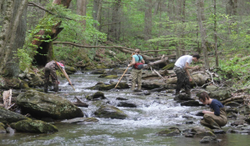
Course format: Blended course with recorded lectures and in-person labs and field trips. Labs are 11:00-1:50 in-person on Tuesdays. Field trips are scheduled based on weather and water conditions, so consider the listing of field trip on the schedule as “if weather permits.” If we leave on long field trips at 11:00, we can expect to return between 5:00-6:00.
Prerequisite: Permission of instructor. Credits: 3 Recent course syllabus and schedule: Spring 2024 Syllabus and Schedule Course Description
“Aquatic Entomology” is designed for graduate students and advanced undergraduates with interests in aquatic ecology and the identification of insects inhabiting lentic (e.g., lakes, ponds, wetlands) and lotic (e.g., rivers, streams, creeks) habitats. Because of the widespread occurrence of aquatic species within the hexapods, insects have invaded freshwater habitats many times during their evolution, in some cases multiple times within an order of insects. This evolution has resulted in a diversity of morphological and physiological adaptations. Thirteen orders of the Class Insecta and other hexapods, including approximately 145 families and 650 genera in North America, have species that are intimately associated with freshwater at least part of their life cycle. Aquatic insects serve critical functions of freshwater ecosystems, including organic material processing, herbivory of micro- and macrophytes, predation of invertebrates (including other insects) and vertebrates (such as amphibians and fish), and as food for higher trophic levels. Because individual taxa respond differently to physical and chemical conditions of freshwater habitats, they are commonly used as bioindicators of environmental stresses caused by humans. In addition, many species of aquatic insects are important pests, such as mosquitoes and black flies. The course will emphasize the biology, ecology, and identification of aquatic insects (and other hexapods), as well as applied aspects of biological monitoring and pest management. ENTM 735 | Sustainability
Course Description
Sustainability requires integration of environmental, economic, and sociological factors towards a common goal of durability. Beneficial insects play important roles for sustainable conditions in their contribution to ecosystem services. In addition, injurious insects must be managed appropriately for the health and well-being of mankind. This course will apply the concept of sustainability to both ecosystem services provided by beneficial insects, as well as to the management of injurious insects. Ecological functions of insects in natural and managed landscapes will be illustrated and discussed. In addition, case histories and discussions will focus on themes of sustainability in successful IPM programs, as well as specific practices that lead to sustainable practices. In the context of current surprising findings of the decline of insect species and populations, the course will conclude with a discussion of sustainable approaches for conserving and restoring insects in the landscape. ENTM798K | Topic SeminarsDr. Lamp offers topic seminars most semesters. The following is a description of the seminar for Spring Semester, 2023:
Challenges and Prospects for Sustainability in Agriculture: Contribution of Plant Diversity on Insect Biodiversity and their Ecosystem Services Recent course syllabus and schedule: Spring 2023 We can all appreciate the need for sustainability in the face of global change on our planet. Agriculture has not really risen to the challenge although there is a lot of lip service for ecological responses to agricultural intensification – think current foci on pollinator health and conservation biological control. And there is a rising recognition of the value of biodiversity, especially insects, for maintaining our planetary ecosystem. Here I ask a simple question: how can agriculture become more sustainable? The seminar is designed to answer the question with an equally simple answer: the addition of plant diversity to farms.
In turn, these environmental benefits will help lead to climate resilience and improved socioeconomic benefits. The seminar is designed to focus each semester on a topic that can be addressed with a coordinated approach, centered on performing a review of a major question. I include a summary of the grant at the end of this topic seminar description.
The seminar for this spring is open to all entomology graduate students, and has a focus on understanding the role of plant diversity to increase ecosystem services on farms provided by arthropods. It is a simple concept: increasing plant diversity on any farm will lead to increased arthropod biodiversity, ecosystem services, soil health, and environmental and socioeconomic benefits. We will define plant diversity at the start of the seminar, then explore ways in which plant diversity interacts with arthropods, in both positive and negative ways.
| |||||||||||||||||||||

